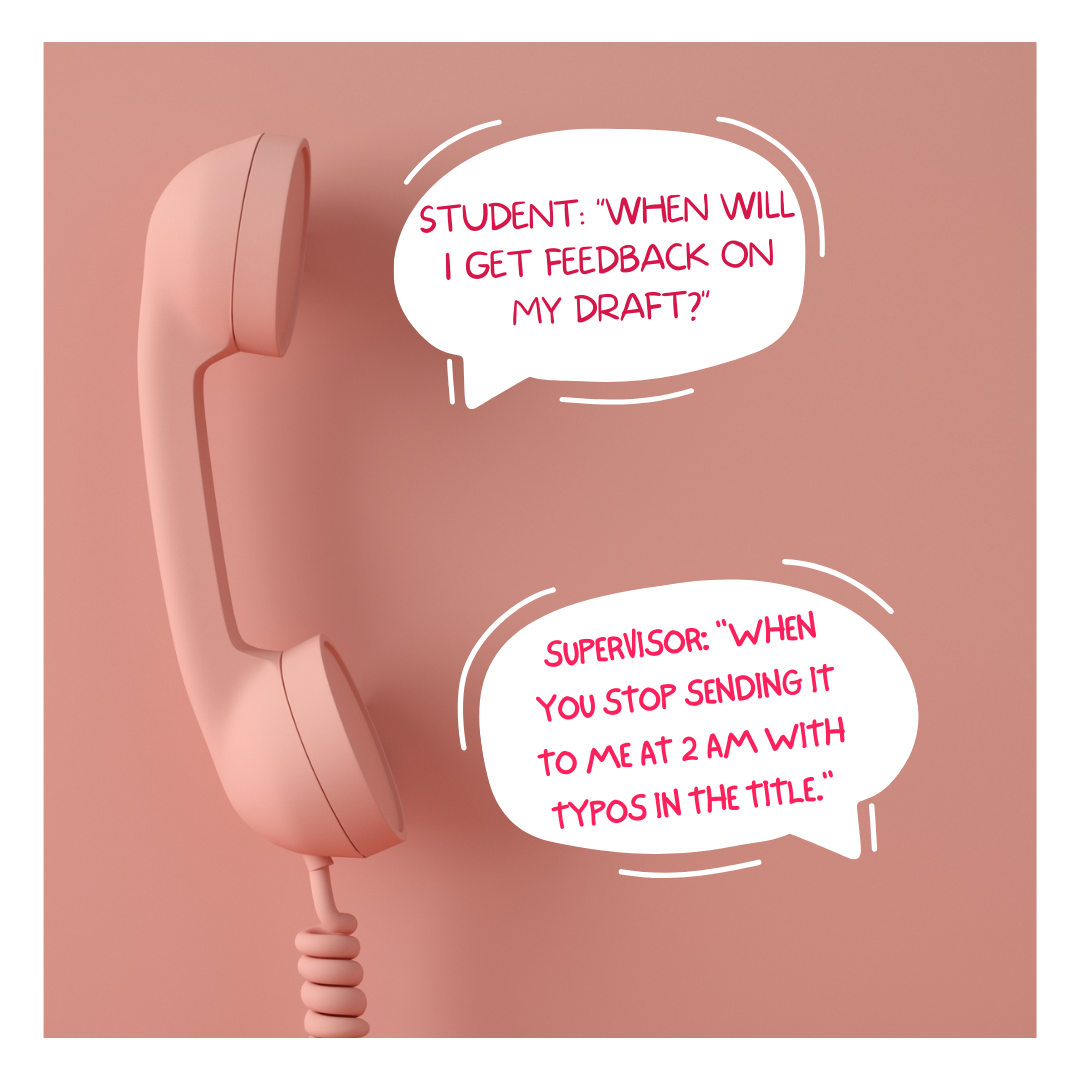Your dissertation supervisor is your guide, your critic, and sometimes your greatest ally during your academic journey. But let’s face it, figuring out how to communicate effectively with them can feel like navigating a maze. Should you email, set up weekly meetings, or send them a carrier pigeon? How do you get constructive feedback without sounding like you’re nagging? Here’s a guide to help you build a productive and professional relationship with your supervisor – and keep the lines of communication open.
Why Communication Matters
Your supervisor has a wealth of knowledge and experience that can help you shape your dissertation into something you’re proud of. But if you don’t communicate clearly and regularly, you’re likely to feel lost, and they’ll struggle to understand your needs. Good communication ensures you’re on the same page, keeps your work moving forward, and avoids unnecessary misunderstandings.
Tips for Effective Communication
Start on the Right Foot
The first meeting with your supervisor sets the tone for your working relationship. Come prepared with a clear idea of your research topic, any initial questions, and a sense of what you need from them. This is also a great time to discuss their expectations, preferred communication style, and availability.

Be Clear and Concise
Supervisors are busy people. When you reach out to them, make your emails or messages straightforward and to the point. Start with a clear subject line (e.g., “Question About Methodology Section”), briefly explain your issue, and suggest specific times or solutions. For example:
“I’m struggling to narrow down my theoretical framework. Would you be available for a 15-minute meeting on Wednesday or Friday?”
Establish a Schedule
Regular check-ins help keep you accountable and give your supervisor a clear idea of your progress. Depending on your needs and their availability, this could be weekly, biweekly, or monthly. Agree on a structure that works for both of you, and stick to it.
Come Prepared
Whether it’s a meeting, an email, or a phone call, make sure you’re prepared. Have a clear agenda of what you want to discuss and provide any relevant documents or drafts in advance. This shows that you value their time and makes the conversation more productive.
Act on Feedback
One of the quickest ways to frustrate a supervisor is to ignore their feedback. After each meeting or email exchange, take the time to process their suggestions, ask for clarification if needed, and make the necessary changes. It’s a sign of respect and shows you’re serious about your work.
Learn to Handle Criticism
No one enjoys criticism, but it’s an essential part of academic growth. When your supervisor offers tough feedback, don’t take it personally. Instead, view it as an opportunity to refine your work. If you’re unsure how to implement their suggestions, ask for clarification or examples.
Respect Their Time
Supervisors are often juggling multiple students, research projects, and administrative duties. Avoid bombarding them with constant emails or last-minute requests. Instead, save non-urgent questions for your scheduled meetings and give them plenty of notice if you need something reviewed.
Common Communication Pitfalls to Avoid
- Being vague: If you don’t clearly explain your problem or progress, your supervisor can’t help effectively.
- Ignoring boundaries: Respect their working hours and avoid unnecessary interruptions.
- Failing to follow through: If they’ve asked you to complete a task or revise a section, make sure you do it before your next interaction.
How Academic Coaching Can Help
Not everyone finds communicating with their supervisor easy. If you’re feeling stuck or unsure how to handle difficult feedback, academic coaching can provide invaluable support. A coach can help you prepare for meetings, organise your questions, and develop strategies to handle criticism constructively. They can also offer guidance on navigating tricky supervisor dynamics, ensuring you get the most out of this critical relationship.
Final Thoughts
Effective communication with your supervisor is key to a successful dissertation journey. Be proactive, organised, and respectful in your interactions, and don’t be afraid to ask for help when you need it. Remember, your supervisor is there to support you – but the responsibility for clear communication lies with you.
And if you’re ever in doubt? Academic coaching can give you the confidence and clarity to handle supervisor meetings like a pro. Reach out today and take the first step towards mastering the art of academic communication.